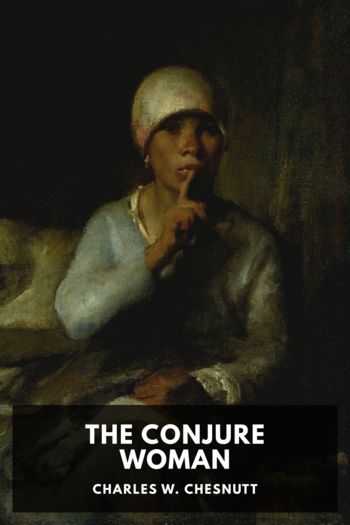The Story of Gösta Berling, Selma Lagerlöf [best way to read books txt] 📗

- Author: Selma Lagerlöf
Book online «The Story of Gösta Berling, Selma Lagerlöf [best way to read books txt] 📗». Author Selma Lagerlöf
So she lay and sang hymns to the heart-conquering god, and never once had closed her eyes in sleep when the major’s wife came in.
When she had gone, Marianne got up and dressed herself. Once more must she put on the black velvet dress and the thin satin slippers. She wrapped a blanket about her like a shawl, and hurried out once again into the terrible night.
Calm, starlit, and bitingly cold the February night lay over the earth; it was as if it would never end. And the darkness and the cold of that long night lasted on the earth long, long after the sun had risen, long after the snowdrifts through which Marianne wandered had been changed to water.
Marianne hurried away from Ekeby to get help. She could not let those men who had rescued her from the snowdrift and opened their hearts and home to her be hunted away. She went down to Sjö to Major Samzelius. It would be an hour before she could be back.
When the major’s wife had said farewell to her home, she went out into the yard, where her people were waiting, and the struggle began.
She placed them round about the high, narrow house, the upper story of which was the pensioners’ far-famed home—the great room with the whitewashed walls, the red-painted chests, and the great folding-table, where playing-cards swim in the spilled brandy, where the broad beds are hidden by yellow striped curtains where the pensioners sleep.
And in the stable before full mangers the pensioners’ horses sleep and dream of the journeys of their youth. It is sweet to dream when they know that they never again shall leave the filled cribs, the warm stalls of Ekeby.
In a musty old carriage-house, where all the broken-down coaches and worn-out sledges were stored, was a wonderful collection of old vehicles.
Many are the pensioners who have lived and died at Ekeby. Their names are forgotten on the earth, and they have no longer a place in men’s hearts; but the major’s wife has kept the vehicles in which they came to Ekeby, she has collected them all in the old carriage-house.
And there they stand and sleep, and dust falls thick, thick over them.
But now in this February night the major’s wife has the door opened to the carriage-house, and with lanterns and torches she seeks out the vehicles which belong to Ekeby’s present pensioners—Beerencreutz’s old gig, and Örneclou’s coach, painted with coat of arms, and the narrow cutter which had brought Cousin Christopher.
She does not care if the vehicles are for summer or winter, she only sees that each one gets his own.
And in the stable they are now awake, all the pensioners’ old horses, who had so lately been dreaming before full mangers. The dream shall be true.
You shall again try the steep hills, and the musty hay in the sheds of wayside inns, and drunken horse-dealers’ sharp whips, and the mad races on ice so slippery that you tremble only to walk on it.
The old beasts mouth and snort when the bit is put into their toothless jaws; the old vehicles creak and crack. Pitiful infirmity, which should have been allowed to sleep in peace till the end of the world, was now dragged out before all eyes; stiff joints, halting forelegs, spavin, and broken-wind are shown up.
The stable grooms succeed, however, in getting the horses harnessed; then they go and ask the major’s wife in what Gösta Berling shall be put, for, as everyone knows, he came to Ekeby in the coal-sledge of the major’s wife.
“Put Don Juan in our best sledge,” she says, “and spread over it the bearskin with the silver claws!” And when the grooms grumble, she continues: “There is not a horse in my stable which I would not give to be rid of that man, remember that!”
Well, now the vehicles are waked and the horses too, but the pensioners still sleep. It is now their time to be brought out in the winter night; but it is a more perilous deed to seize them in their beds than to lead out stiff-legged horses and shaky old carriages. They are bold, strong men, tried in a hundred adventures; they are ready to defend themselves till death; it is no easy thing to take them against their will from out their beds and down to the carriages which shall carry them away.
The major’s wife has them set fire to a haystack, which stands so near the house that the flames must shine in to where the pensioners are sleeping.
“The haystack is mine, all Ekeby is mine,” she says.
And when the stack is in flames, she cries: “Wake them now!”
But the pensioners sleep behind well-closed doors. The whole mass of people begin to cry out that terrible “Fire, fire!” but the pensioners sleep on.
The master-smith’s heavy sledgehammer thunders against the door, but the pensioners sleep.
A hard snowball breaks the windowpane and flies into the room, rebounding against the bed-curtains, but the pensioners sleep.
They





Comments (0)